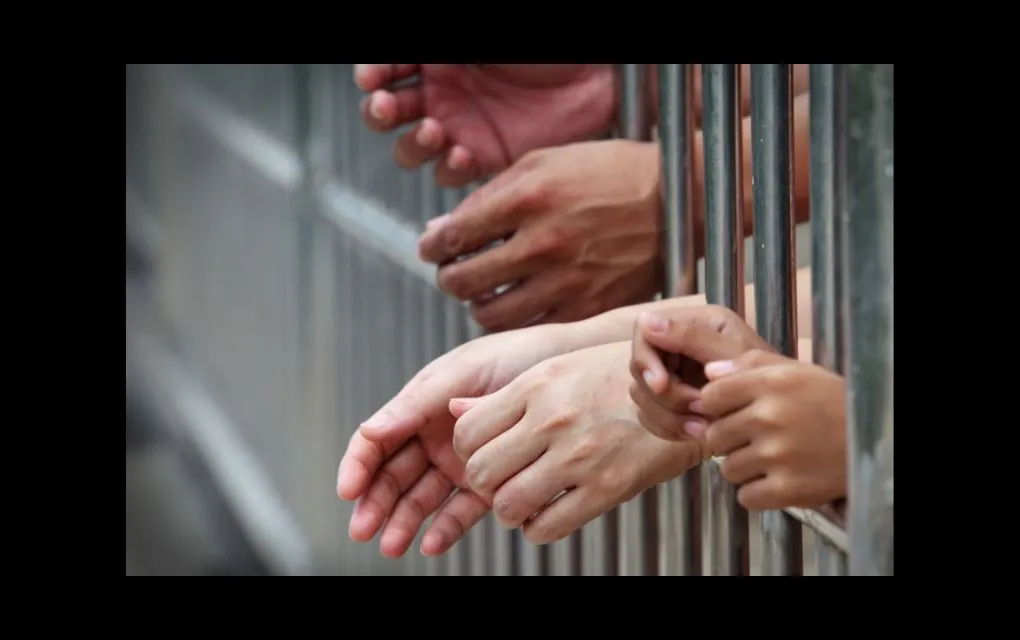Via press release from the KY Center for Economic Policy
In a Wednesday press conference, several Kentucky organizations and individuals with direct experience with the criminal legal system called on Governor Andy Beshear to veto Senate Bill (SB) 163, which passed out of both legislative chambers during the waning hours of the 2022 Kentucky General Assembly.
Postsecondary education opportunities during and after incarceration have been shown to reduce returns to prison by as much as 43%, but nationally, fewer than 15% of people leaving incarceration have completed some postsecondary education. When first introduced, SB 163 attempted to address this problem by allowing formerly incarcerated people to access Kentucky Educational Excellence Scholarship (KEES) funding. But the final version of SB 163 instead reduces educational opportunities available for current and formerly incarcerated individuals — the exact opposite of the bill’s original intent.
The final version of SB 163 that has landed on Governor Beshear’s desk enacts a new lifetime ban on accessing state scholarships through the need-based College Access Program, Work Ready, and other aid programs. Under current law, incarceration and felony conviction status have no bearing on eligibility for these programs. But SB 163’s new bans will apply to people with convictions for violent offenses (a very broad category in Kentucky) or criminal offenses against a minor, and an additional ban on accessing these programs while incarcerated for those with certain trafficking or importing offenses, even for small amounts of fentanyl, heroin, and other substances.
Amanda Hall, national campaign director for Dream Corps JUSTICE, understands both professionally and personally the harms that will result from SB 163’s new barriers. Hall said, “In my mid-20’s I was convicted of two drug trafficking offenses and sent to prison. I signed up for every class and program while I was there. I suffered from a substance use disorder and desperately wanted to get my life on track. Unfortunately, college classes were not an option for me at the time, and under SB 163, I fear that would be codified into law by taking away much-needed funding.”
Hall added, “I know firsthand the importance of higher education. Without it, I wouldn’t be able to live the life that I now live or to provide for my family in the way that I am now afforded. Yet, SB 163 threatens to diminish these same opportunities for fellow Kentuckians through its lifetime bans.”
Carmen Mitchell, policy analyst at the Kentucky Center for Economic Policy, said, “Restricting the availability of educational opportunities for formerly incarcerated people is cruel and counterproductive. 41% of Kentuckians leaving incarceration end up returning after two years, but higher education has been shown to reduce recidivism. Furthermore, it is especially egregious to restrict access to these programs when the 2022 General Assembly budget includes the full statutory funding for college financial aid, a 42% increase in funding for CAP need-based scholarships compared to the prior budget. Under SB 163, many of our fellow Kentuckians couldn’t benefit from this expansion.”
Several participants in today’s press conference stressed that April is National Second Chance Month, “a month where we should be uplifting and declaring that all Kentuckians are worthy of dignity and respect. Moreover, we should be reaffirming the absolute importance of assisting formerly incarcerated individuals as they reenter society,” said Kungu Njuguna, policy strategist with the ACLU of Kentucky.
Njuguna noted that just last week, Governor Andy Beshear acknowledged the importance of Second Chance Month as “a nationwide effort to raise awareness of the wider consequences of a criminal conviction, and to unlock opportunities for people for who have completed their debts to society.”
“But SB163 is anything but a Second Chance bill,” Njuguna said. “It is punitive and unnecessarily so. It won’t deter crime, it won’t help lower our recidivism rates, and it won’t keep our communities safer.” It will, however, further exacerbate racial disparities in the Commonwealth. Black Kentuckians are overrepresented in our prison population, accounting for only 8% of the total population but 21% of the prison population. “And given that Black Kentuckians lag behind their white counterparts in obtaining college degrees, SB163 could further widen this educational gap,” Njuguna said.
Alaina Combs is now CEO of Lane 13 Consulting and worked for eight years with a long-term recovery program for women. She has helped many women experience change and redemption and eventually share their stories with legislators and the public. Combs said that if SB 163 becomes law, “So many of the people I have worked with over the years will now be prohibited from getting these opportunities to increase their chances of education and a better life. It is heartbreaking for me to think about telling them that Kentucky says they are no longer worthy of these life-changing opportunities.”
Combs doesn’t just help others tell their second chance stories. She has one of her own: “I am a second chance student that received these scholarships, and without them, I would not be graduating with my BSW on May 6th. I would not have been accepted into the MSW advanced standing program, and ultimately my chances of returning to incarceration would have been much higher.”
All the evidence and all the stories presented during today’s press conference point to the only outcome that can prevent the harms of this legislation. A veto of SB 163 from Governor Beshear is Kentucky’s final chance to clear the way for better legislation next year to actually promote, rather than undermine, educational access and successful reentry after incarceration.
--30--







